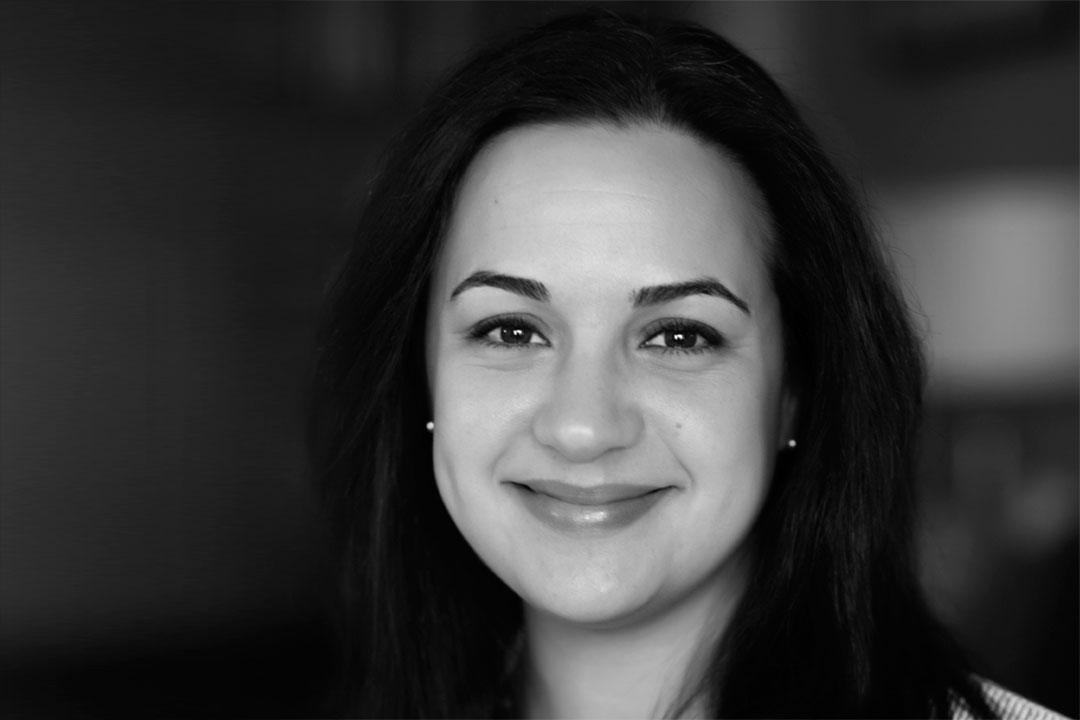Christine Cole
Nearly 40 percent of Americans will be diagnosed with some form of cancer in their lifetimes (according to the National Cancer Institute), and the emotional and financial impact of a diagnosis on these individuals and their families can be enormous.
"Everyone likely has some type of connection to cancer, indirectly or not, or has been impacted by this disease," says Monica Fawzy Bryant, JD '06. "In many instances, cancer is a chronic illness, which means more survivors – yet it can still devastate people's lives."
Bryant doesn't believe that people's chances of survival and success, which also includes financial health for themselves and their families, should be dependent on their understanding of the law.
But, she says, too often that is exactly what happens-which is why in 2012, Bryant co-founded Triage Cancer, a national non-profit that offers practical and legal education about cancer survivorship. Bryant serves as chief operating officer.
Triage Cancer spends most of its efforts covering broad financial matters, such as employment rights, health insurance, estate planning, and disability insurance, but they're also starting to cover more narrowly-focused topics such as genetic information and medical marijuana. They aim to tackle these subject areas through a speakers bureau, online resources (animations and quick guides in "plain language to demystify the law"), and educational conferences and workshops, many for health care professionals.
"We wanted to narrow in on the idea of education … If we can catch people further upstream before they are in crisis – before lost jobs, insurmountable debt, and lost health insurance – we can help mitigate some of the financial and emotional concerns that occur after a cancer diagnosis," she says.
From 2012-2018, Triage Cancer provided more than 246,000 people with cancer survivorship education through more than 659 online and in-person educational events held in 48 states, DC, and Guam.
"We do smaller group workshops, typically for nurses, social workers and navigators, to educate them on legal issues that individuals coping with cancer often face because they are the ones on the front lines," says Bryant, noting that they're the ones who hear about the stresses of people losing their jobs or not understanding their health insurance. Triage Cancer wants health care professionals to be aware of the issues and provide them with resources for their patients.
Bryant always had interest in politics and policy and how the law shapes people's everyday lives. As an undergraduate, she knew law school was in her future and that she wanted to be in Washington, DC—and she fell in love with GW. "Professors, for the most part, had jobs outside of teaching, and those who were full-time professors had careers in public service or practice outside the theoretical concepts of law," she says.
But Bryant knew the courtroom wasn't for her. She was more interested in policy and how laws are created. And many of her internships and first few jobs provided the opportunity to learn more.
Bryant worked on the nonproliferation of nuclear arms, and during her second year of law school, she worked with U.S. Senator Diane Feinstein on the judiciary committee. She even got to help Sen. Feinstein's chief council with the confirmation hearings of Supreme Court Justices John Roberts and Samuel Alito.
"Working in Congress," Bryant says, "opened up a whole world to me, in terms of how the policy and ideas got batted around and ended up becoming law."
And later, while serving as Legislative Council for Congresswoman Linda Sanchez, Bryant learned a great deal during her meetings with interest groups and constituents. "They (constituents) didn't understand how the law would work for them," says Bryant. "The average American doesn't understand how much power they could have."
These experiences solidified her desire to spend time either creating policy and good law or helping people utilize new law. It was after meeting her husband and moving to Chicago that she stumbled onto an advocacy role for people struggling with cancer. It was the lack of education in this arena that lead to the formation of Triage Cancer.
Along with her work at Triage Cancer, Bryant, also a mother of two young children, has served as an adjunct law professor at John Marshall School of Law and as vice chair of the American Bar Association's (ABA) Breast Cancer Initiative Advisory Committee. She also sits on the ABA's Affordable Care Act Task Force and the Coalition to Protect Parenthood After Cancer. She also recently co-authored Cancer Rights Law: An Interdisciplinary Approach (ABA Book Publishing, 2018), with her sister, who is CEO of Triage Cancer.
Bryant says she's fortunate to have the education and support she's had in her career as a cancer rights attorney and that she believes people should use their talents and skills to make things in this world a little better, adding, "This is the way I found to do that."
Three tips from Monica:
• Know your rights before making major decisions
• Understand your options around privacy and disclosure
• Seek out available resources – there are a lot in the cancer community
This story originally published on gwalumni.org.


